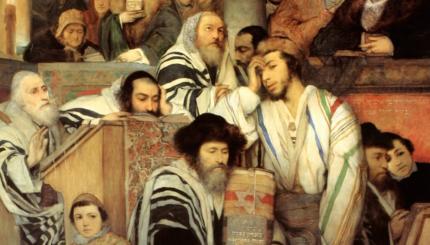Since ancient times, Judaism’s most central prayer has included a curse against our enemies, both internal and external. The 12th blessing of the weekday Amidah reads as follows:
Let there be no hope for informers, and may all wickedness instantly perish; may all the enemies of Your people be swiftly cut off, and may You quickly uproot, crush, rout and subdue the insolent, speedily in our days. Blessed are You, Adonoy, Crusher of enemies and Subduer of the insolent.
This blessing has long been a controversial one. Beginning in the Middle Ages, secular authorities forced the rewriting of this blessing, which in its original form (preserved in the 1,000-year-old Siddur of Rav Saadia Gaon) refers to a “kingdom of insolence,” rather than “the insolent.” This phrasing clearly indicates that the external enemy in question was a political entity. The first reference to an insolent kingdom is in the Book of Jeremiah (50:31-32), where it refers to the Babylonians who destroyed the First Temple. Later this kingdom was associated with Egypt, our original tormentors, and later still Rome, which destroyed the Second Temple.
The blessing has also been controversial among Jews who, beginning in the 19th century, grew sheepish about it and self-censored the text. In America, it was absent from Reform liturgy for more than 100 years, and it never appeared in Reconstructionist liturgy. Conservative and most Orthodox prayer books, following censored texts from the Middle Ages, simply dropped the reference to a kingdom.
It is important to note what we are praying for in this blessing — and what we are not. It is not a call for revenge for its own sake, or even for the outright death of our enemies (although some later versions include harsher words). The 14th-century prayer book commentator Rabbi David Abudraham asked how it is possible that we can curse anyone in the Amidah. In answering his own question, he notes that our blessing does not call for explicit destruction of our enemies (which is forbidden by the Talmud). We are praying only that they be stopped.

Help us keep Jewish knowledge accessible to millions of people around the world.
Your donation to My Jewish Learning fuels endless journeys of Jewish discovery. With your help, My Jewish Learning can continue to provide nonstop opportunities for learning, connection and growth.
To be sure, some Jews in the past have used this prayer to call for bloody revenge. In some extreme quarters today, they still do. But this would seem to be a perversion of the spirit of the prayer. One 19th-century authority, Rabbi Yaakov Tzvi Mecklenberg, claimed that we cannot be praying for the death of evil people, rather that evil people be thwarted. Presumably, this includes war and other physical acts to stop them, which may indeed lead to their death, but it might also include negotiated solutions. The specifics are not legislated. The essential nature of the prayer is that the kingdom be uprooted — that is, rendered ineffective in its attacks on Israel.
Our most basic prayer recognizes the reality of Jewish vulnerability; we have enemies, and they should be stopped. Nevertheless, a moral outlook on this request necessitates a limited approach to neutralization: one that focuses on necessary steps to subdue, but not bloody revenge. Giving voice to our prayers against enemies is a balancing act: praying for their dissolution while upholding our ethical values.




